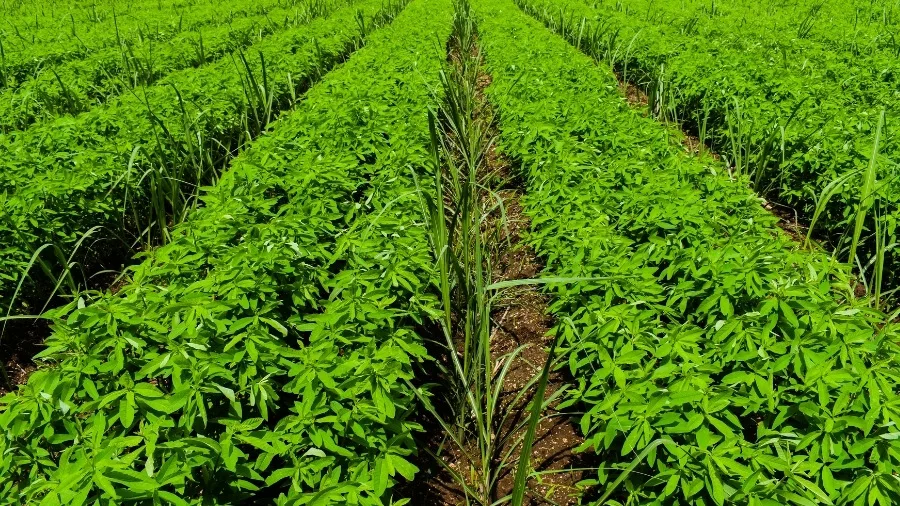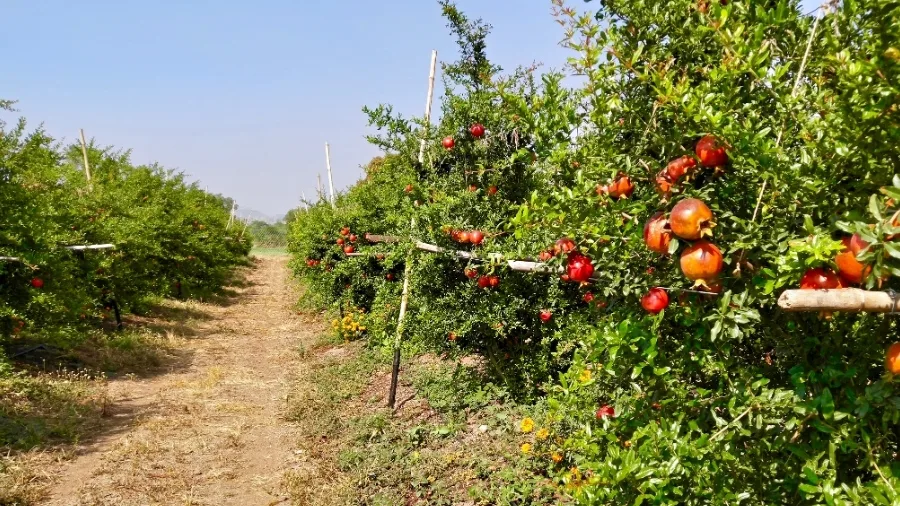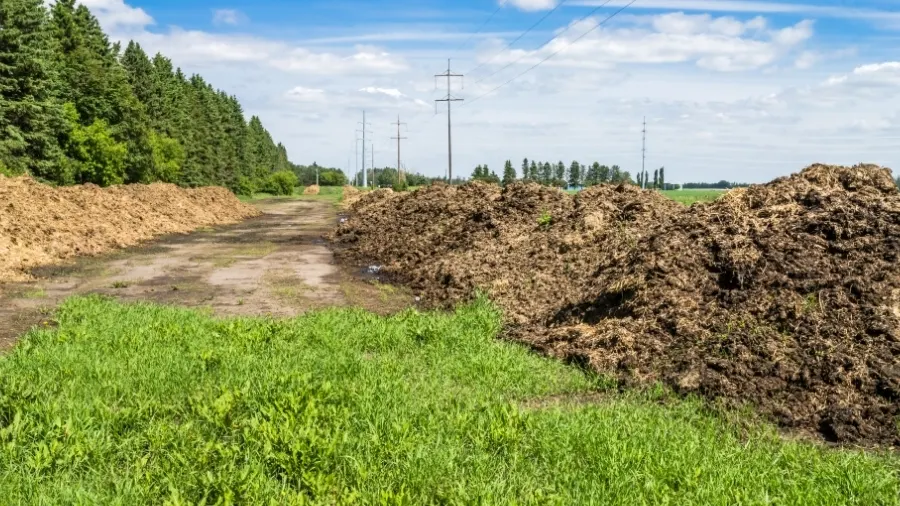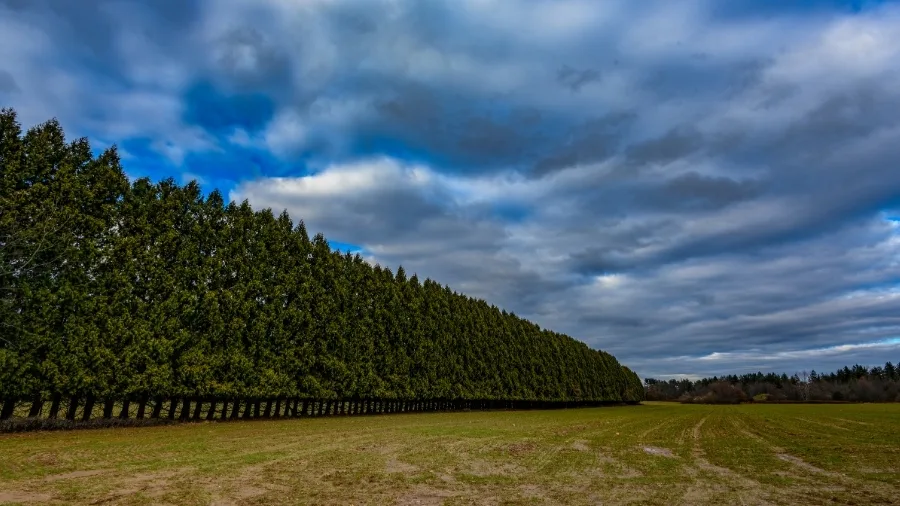Permaculture Consulting Services for Sustainable Land Design
Maximize your land’s potential with expert permaculture consulting from experienced permaculture consultants who solve low yields, degraded ecosystems, and inefficient resource use. Our strategies boost productivity, restore ecosystem health, and cut costs while helping you create a resilient, profitable, and sustainable farm.
Advancing Regenerative Outcomes with Practical Permaculture Expertise
At Cultiva EcoSolutions, we specialize in designing and applying regenerative strategies grounded in permaculture design principles that improve ecosystem health, increase agricultural productivity, and support social well-being. Below is a summary of our core consulting services, each structured to help you achieve measurable results across ecological, economic, and community-based goals.
Permaculture Design & Implementation
What It Is: High-level planning and hands-on execution for farms, estates, community gardens, and urban projects.
Key Benefit: Reduce waste, increase soil fertility, and create self-sustaining ecosystems.
Sustainability Audits & Strategic Advisory
What It Is: In-depth evaluations of land use, resource consumption, and operational processes.
Key Benefit: Identify opportunities for cost savings and improved productivity.
Soil & Nutrient Management for Better Yields
What It Is: Comprehensive soil analysis, composting plans, and custom nutrient programs.
Key Benefit: Enhance yield quality, boost plant resilience, and regenerate soil health.
Community & Education Programs
What It Is: Workshops, training sessions, and community outreach to foster sustainable practices.
Key Benefit: Empower teams and local residents with the knowledge and tools to thrive in a regenerative environment.
Water Management & Resource Efficiency
What It Is: Comprehensive water usage analysis, infiltration strategies, and irrigation optimization.
Key Benefit: Conserve resources, reduce operational costs, and build resilience against unpredictable climates.
Climate Resilience & Adaptive Strategies
What It Is: Tailored plans to help your land and operations withstand uncertain weather patterns and environmental stressors.
Key Benefit: Secure your yields, protect your infrastructure, and future-proof your business against environmental fluctuations.
Why Our Permaculture Works Where It Matters
We go beyond generic advice to offer site-specific, results-oriented permaculture consulting. Our strategies integrate ecological science, economic viability, and cultural context. Whether you're improving degraded land or scaling a regenerative system, we align design with practical goals. The outcome is a resilient, productive landscape tailored to your region and needs.
- Analytical Permaculture
- Certified Systems
- Earthworks Design
- Bioregional Intelligence
Site-Specific Permaculture Consulting Benefits for Resilient, Profitable Landscapes
Customized Solutions Over Templates
We believe every farm, estate, or community space is unique. Our strategies address land conditions, resource use, and goals. We focus on sustainable land development, not one-size-fits-all methods.
Transparent & Flexible Engagement
We adapt to your scale, budget, and timeline, offering everything from site-specific permaculture consulting to structured, retainer-based partnerships. Services include design, implementation, and long-term support.
Holistic Horticulture Mastery
We combine expertise from key areas of permaculture into a single consulting process. This saves you time and effort while supporting long-term sustainability and strengthening your system’s ability to adapt to change.
Permaculture Consulting Services with Practical Systems, Proven Results
Cultiva EcoSolutions offers tailored permaculture consulting to help landowners and organizations implement regenerative land-use systems. From swales and perennial guilds to strategic packages like audits and blueprints, we combine ecological science with practical design to deliver lasting, measurable results.
Closed-Loop Soil Systems & Organic Matter Cycling
Our consulting process emphasizes soil system design that integrates organic residue management, perennial ground cover, and in-situ biomass processing to create stable, nutrient-retentive soil layers. This supports reduced external input dependency and builds long-term fertility through microbial and fungal network optimization.
- ↑ +30–40 % soil organic carbon after 3–5 years in closed-loop layouts
- ↓ −15–25 % nitrogen leaching with cover-integrated mulch strategies
- Fungal-to-bacterial biomass ratio improved by 1.8× on average

| Soil Strategy Element | Observed Effect |
|---|---|
| Shredded biomass layering (on-site) | Soil carbon ↑ +32 % |
| Permanent ground cover (living mulch) | Runoff nutrient loss ↓ −18 % |
| Fungal inoculant integration | Hyphal density ↑ +47 % |
| Results vary with soil type, crop selection, and management approach. | |
Layered Polyculture Architecture & Functional Guild Mapping
Our consulting framework structures plant arrangements based on canopy stratification, root depth alternation, and ecological niche pairing. Functional plant guilds are selected for nitrogen cycling, pest buffering, and continuous yield layering across seasons.
- ↑ +22–35 % yield diversity across multilayer guild systems
- Pest suppression improved by 1.6× in polyculture vs. open monocultures
- ↑ +41 % resilience to seasonal temperature variability

| Plant Guild Composition | System-Level Effect |
|---|---|
| Nitrogen fixer – nutrient miner – canopy crop | Root zone nutrient availability ↑ +27 % |
| Medicinal herb understorey + vertical trellis crop | Shaded evapotranspiration ↓ −22 % |
| Insectary edge buffer + productive core | Pest incursion frequency ↓ −36 % |
| Outcomes depend on climate conditions and local adaptation. | |
Nutrient Flow Design Using Multi-Layer Biomass Cycling
Our nutrient planning integrates site-grown biomass sources such as legume cover, tree litter, and bioferments into multi-stage decomposition flows. This approach enables gradual mineral release, supports root-zone buffering, and aligns with organic nutrient budgeting models.
- ↑ +34 % nutrient-use efficiency in biomass-fed fertility cycles
- ↓ −18 % input costs via on-site organic matter conversion
- Improved P/K cycling in 2:1 root uptake strata across seasons

| Biomass Strategy | Nutrient Effect |
|---|---|
| Layered green manure applications | Slow-release N ↑ +21 % |
| Tree litter windrows | P mobility ↑ +17 % |
| Bioferment foliar cycles | K uptake rate ↑ +26 % |
| Actual results depend on species choice, spacing, and context. | |
Decentralized Zone Planning & Human Workflow Efficiency
We apply zone-based logic (0 to 5) using simple assessments and mapped layouts to streamline daily operations. The approach reduces unnecessary walking, fuel use, and tool relocation without relying on costly digital tools.
- Estimated 20–30% reduction in daily labor distance through simplified zone structuring
- Improved workflow adherence observed with low-tech mapped-use layouts
- Localized operations linked to 12–15% lower fuel and tool energy needs

| Design Feature | Operational Result |
|---|---|
| Zone-based task distribution | Time-on-task efficiency ↑ +22 % |
| Tool cache stations near use points | Task interruption ↓ −19 % |
| Perimeter-to-core flow redesign | Path redundancy ↓ −31 % |
| Effectiveness depends on climate, material quality, and timing. | |
On-Farm Resource Loops for Basic Energy & Fertility Needs
We help farms create simple, self-sustaining loops that cover everyday needs using local resources. From composting kitchen scraps to reusing ash or wash water, our consulting prioritizes achievable circular practices without relying on complex infrastructure or off-grid systems.
- ↓ −35 % organic waste volume through low-tech composting & mulching
- ↑ +24 % nutrient recapture by using ash, greywater, and food scraps
- ↓ −15–20 % household input reliance (fertilizers, detergents, firewood)

| Local Practice | System Benefit |
|---|---|
| Kitchen waste to compost + leaf mulch | Soil fertility input savings ↑ +19 % |
| Wood ash for potassium & cleaning agent | Multi-use material yield ↑ +27 % |
| Bucket greywater use on trees & hedges | Water-use efficiency ↑ +22 % |
| Results will vary based on terrain, layout, and daily practices. | |
Climate-Adaptive Crop Layouts & Seasonal Transition Planning
We design spatial crop systems that respond to seasonal extremes, combining wind-buffer rows, microclimate stabilization zones, and shade-yield tradeoffs. This reduces thermal and water stress, improves staggered harvest planning, and supports stable production across volatile weather cycles.
- ↑ +24–36 % resilience to early/late onset of rains or frosts
- ↓ −17 % crop loss in weather-exposed rows (based on zoned layouts)
- Improved year-round rotation efficiency via microclimate-based scheduling

| Layout Strategy | Observed System Response |
|---|---|
| Wind-buffer hedge rows (e.g., moringa + papaya) | Wind damage risk ↓ −26 % |
| North-South row orientation (sun-angled) | Canopy temperature ↑ +3–4 °C stability range |
| Transitional plot zoning (e.g., cool-season corridor) | Staggered yield reliability ↑ +31 % |
| Outcomes vary with resource availability and implementation scale. | |
Permaculture at the Core of Sustainable Agriculture
Our permaculture consulting anchors the wider sustainable agriculture consulting framework. See how we embed closed‑loop nutrient cycles, biodiversity stacking, and climate‑smart design to build resilient farm ecosystems.
View Full Framework — explore all services that complement our permaculture consultingDetailed Overview of Our Permaculture Consulting Solutions
Grow with Full Confidence
At Cultiva EcoSolutions, we provide permaculture strategies that restore soil vitality, improve water efficiency, and strengthen ecological systems. Each service is grounded in practical methods and scientific insight, helping you achieve lasting productivity while minimizing your environmental footprint.
Get Your Permaculture Plan to receive expert guidance tailored to your land's ecology and productivity goalsPermaculture Design & Implementation
Objective & Challenges
Objective: Create a self-sustaining ecosystem that optimizes yield and conserves resources.
Common Challenges:
Degraded soil with low organic matter.
Inefficient water usage.
Lack of long-term, strategic land-use planning.
Our Approach & Methodology
Discovery & Land Assessment: We perform a comprehensive soil and terrain analysis, identify microclimates, and map out existing plant biodiversity.
Custom Design Blueprint: Based on your goals - be it higher crop yield or enhanced biodiversity - we develop a permaculture design that includes plant guilds, zone mapping, and resource flow.
Implementation Support: We guide your team through soil amendments, planting schedules, and infrastructure setup (such as terracing or windbreaks).
Monitoring & Optimization: Post-implementation check-ins to measure plant growth, soil health, and water usage, making continuous improvements as needed.
Expected Results
Improvement in soil fertility within the first growing season.
Reduced water requirements.
Significant increase in biodiversity, leading to more resilient ecosystems.
Ready to take sustainability further and build long-term resilience into your farm? Explore our regenerative agriculture consulting services , designed to help you move beyond compliance toward healthier soils, more diverse crops, and a stronger production system.
Sustainability Audits & Strategic Advisory
Objective & Challenges
Objective: Identify wasteful practices and untapped efficiencies in your operations.
Common Challenges:
High operational costs linked to energy or resource waste.
Unclear sustainability metrics and goals.
Our Approach & Methodology
Operational Review: We conduct on-site evaluations, interview key stakeholders, and review utility/cost data.
Gap Analysis & Benchmarking: Compare your current resource usage against industry best practices or local standards.
Strategic Recommendations: Propose cost-saving measures, supply chain optimizations, and policy frameworks for continuous improvement.
Implementation Roadmap: Provide a step-by-step action plan - including timelines, estimated budgets, and KPIs to track progress.
Expected Results
Savings on monthly operational costs.
Clear sustainability goals and metrics for accountability.
Improved brand reputation as a result of more responsible operations.
Soil & Nutrient Management for Better Yields
Objective & Challenges
Objective: Enhance soil fertility and optimize plant nutrition for robust, resilient crop growth.
Common Challenges:
Nutrient depletion or imbalance due to past land use.
Inadequate soil structure leading to poor water retention.
Uncertainty around proper composting and organic amendments.
Our Approach & Methodology
Soil Analysis & Testing: Conduct comprehensive lab tests to determine pH levels, nutrient profiles, and organic matter content.
Custom Nutrient Plan: Develop a tailored fertilization schedule using organic amendments or slow-release nutrients based on your soil’s specific needs.
Composting & Regeneration Strategies: Recommend on-site composting systems, cover cropping, and rotation plans that build soil health over time.
Ongoing Monitoring & Adjustments: Perform regular soil checks and adjust strategies to ensure sustained fertility and nutrient balance.
Expected Results
Enhanced soil structure and fertility within one planting cycle.
Reduced reliance on synthetic fertilizers.
Healthier root development and improved yields over the long term.
Need more targeted fertility solutions? Dive into our crop nutrition and soil fertility consulting services to create biologically rich, high-performance soils.
Water Management & Resource Efficiency
Objective & Challenges
Objective: Maximize water efficiency and ensure stable resources for crops and community needs.
Common Challenges:
Fluctuating rainfall or unpredictable weather patterns.
High water bills or infrastructure costs due to inefficiencies.
Soil erosion and runoff issues causing water waste.
Our Approach & Methodology
Water Usage Audit: Evaluate existing irrigation systems, usage data, and field conditions to pinpoint inefficiencies.
Infiltration & Erosion Control: Implement strategic land contouring, swales, or terracing to improve water retention and reduce erosion.
Irrigation Optimization: Suggest drip systems, automated scheduling, or sensor-based controls for precise irrigation.
Long-Term Resilience Planning: Establish backup water sources (like storing runoff) and drought-resistant planting strategies to handle climate variability.
Expected Results
Lower water consumption through optimized irrigation.
Reduced runoff and improved soil moisture, cutting soil erosion significantly.
Greater drought resilience and long-term cost savings.
Want to optimize your resource usage with precision tools? Discover our AgTech consulting services , enabling smarter irrigation, monitoring, and decision-making.
Community & Education Programs
Objective & Challenges
Objective: Empower communities, teams, and stakeholders with the knowledge and skills to sustain regenerative systems.
Common Challenges:
Resistance to change due to lack of understanding or engagement.
Inconsistent application of sustainable practices over time.
Fragmented community efforts lacking coordination or expertise.
Our Approach & Methodology
Needs Assessment & Curriculum Design:
Identify knowledge gaps and learning objectives through surveys or stakeholder interviews.
Develop tailored workshops or training modules for different audience levels.
Interactive Workshops & Field Training:
Conduct hands-on sessions on topics such as composting, permaculture basics, or water conservation.
Encourage peer-to-peer learning and practical demonstrations.
Follow-up & Mentorship:
Offer post-workshop support, such as Q&A sessions or site visits, to reinforce training.
Provide resource guides, checklists, and ongoing mentorship for sustained success.
Community Building: Facilitate collaborative projects, helping participants form networks and share best practices.
Expected Results
Higher adoption of sustainable methods among staff, volunteers, or local residents.
Stronger community engagement and collective ownership of regenerative projects.
Creation of local champions who maintain and advocate for permaculture practices.
Climate Resilience & Adaptive Strategies
Objective & Challenges
Objective: Equip your land and operations to withstand environmental stressors and unpredictable weather changes.
Common Challenges:
Increasing frequency of extreme weather events (storms, heat waves, etc.).
Vulnerability to pest or disease outbreaks in shifting climates.
Long-term uncertainty about resource availability (water, seeds, etc.).
Our Approach & Methodology
Risk Assessment & Vulnerability Analysis: Analyze historical weather patterns, soil conditions, and crop data to identify potential climate-related risks.
Adaptive Planting Practices: Introduce drought-tolerant or resilient plant varieties, explore polyculture systems.
Infrastructure & Landscape Adjustments: Recommend windbreaks, shade structures, or strategic planting to mitigate weather extremes.
Long-Term Resilience Plan: Develop contingency plans, seed banks, and step-by-step procedures for rapid response during extreme climate events.
Expected Results
Reduced vulnerability to droughts, floods, and temperature spikes.
More stable crop yields despite fluctuating conditions.
Peace of mind from having actionable contingency strategies in place.
Interested in combining biodiversity with long-term productivity? Explore our agroforestry consulting services to integrate tree-crop systems that improve soil, water retention, and resilience.
Practical Experience. Focused Guidance. Long-Term Resilience.
Field-Tested Strategies
At Cultiva EcoSolutions, our team brings deep, hands-on expertise in horticulture and permaculture, built through direct fieldwork and real-world challenges. We prioritize outcomes that strengthen systems and support measurable improvements. Your land gains from practical insight, reliable support, and a lasting focus on ecological integrity.
Learn More About Us — including our permaculture team, consulting experience, and approachPermaculture Expertise That Translates Into Field-Ready Results
Holistic Horticulture for Enduring Growth
At Cultiva EcoSolutions, sustainable outcomes start with a mastery of core horticultural sciences. In this way, we can pinpoint challenges and craft resilient solutions.
Unbiased & Quality-Focused
Because we operate independently, our advice is guided solely by your best interests — never by external pressures or incentives.
Engineer-Led, Real-World Solutions
At Cultiva EcoSolutions, engineers — rather than sales reps — call the shots. We take no shortcuts. Our team delivers science-driven solutions that stand up to real-world demands.

Build Functioning Ecosystems. Your First Consultation Is Free.
Every site presents unique constraints such as climate, water access, terrain, community involvement, or project scale. Our permaculture consultants work with you to define what’s possible and deliver systems that function in the real world.
We specialize in permaculture planning, land-use design, water management, soil regeneration, plant integration, and long-term system resilience. Whether you're focused on regenerative land management or building food-secure communities, your first session is free so you can evaluate our approach without obligation and explore where meaningful improvements can begin.
Contact Us — speak with a permaculture expert to explore customized solutions for your landPermaculture Consulting FAQs for Informed Decisions
Get practical answers to common questions about our permaculture consulting services. This section covers how we support growers, landowners, and organizations in building resilient systems, improving land productivity, and solving ecological challenges. Whether you're managing a small site or a complex project, the details here provide valuable clarity. Still have questions? Contact us and we’ll be glad to assist you.
Practical Clarity, Trusted Insight
Contact Us — speak with a permaculture consultant about your land, system, or site-specific questionsAt Cultiva EcoSolutions, our permaculture consulting approach begins with one essential assumption: ecological regeneration and profitability are not opposites — they must co-exist. We conduct a site-specific economic analysis alongside a soil, water, and biodiversity assessment. This dual lens allows us to design permaculture systems that not only restore ecosystems but optimize input efficiency, labor use, and long-term output stability. Whether it’s agroforestry, zone layering, or water harvesting integration, each design choice is weighed for its ROI in real-world farm economics, not idealized scenarios. This balance is what allows clients to move from regenerative theory to profitable implementation.
Our consulting process at Cultiva EcoSolutions is designed for clarity, accountability, and real-world impact. It begins with a goal-focused consultation and detailed site assessment (soil, water, infrastructure, climate), followed by a tailored permaculture design using zone planning and species layering. We then provide an implementation roadmap with clear phases, timelines, and resource guidance. Clients receive custom training to ensure confident execution, along with optional post-project monitoring and adjustments. This approach delivers scalable, measurable systems — not just concepts on paper.
Clients receive a complete Permaculture Implementation Kit tailored to their site. Deliverables include a custom site map with zones and design elements, a step-by-step installation timeline with cost and labor estimates, a species list with companion planting strategies, soil improvement protocols, and water management recommendations. Where relevant, we also provide financial projections and market integration advice. All deliverables are built for field use, not theory.
Yes. We typically design around existing infrastructure and recommend an incremental transformation. Priority is given to interventions with the highest return, such as water flow correction or biodiversity integration. This minimizes disruption and allows you to build resilience without discarding what already works.
We track biological and economic indicators to assess system performance. Metrics may include soil organic matter, microbial activity, water use efficiency, crop yields, input reductions, and system stability under climate stress. Benchmarks are established early and reviewed over time to ensure measurable progress.
We offer remote consultations, seasonal site visits, and hands-on training sessions on topics like composting or ecological monitoring. Optional reports can also track system health indicators. These services are adapted to your capacity to ensure the system continues developing successfully.
We focus on results, not slogans. Our approach is grounded in ecological logic, scientific understanding, and operational strategy. Led by a PhD-level agronomist, we design systems that improve land function, reduce reliance on external inputs, and align with market and regulatory realities. Clients come to us for outcomes, not ideals.
Still have questions about strengthening your permaculture systems? Visit our FAQ page clear answers to common questions about regenerative land practices, water-smart design, ecosystem balance, and long-term resilience. It's designed to help you make informed decisions with confidence.
View More FAQs — explore permaculture consulting insights and solutions in our frequently asked questionsRegenerate Your Land. Restore Biodiversity. Cultivate True Sustainability.
Expert Permaculture Consulting for Regenerative Land Management and Thriving Ecosystems
Curious how permaculture can transform your property? We’ll pinpoint your site’s unique needs. Share your details, and we’ll guide you toward a thriving, self-sustaining environment.